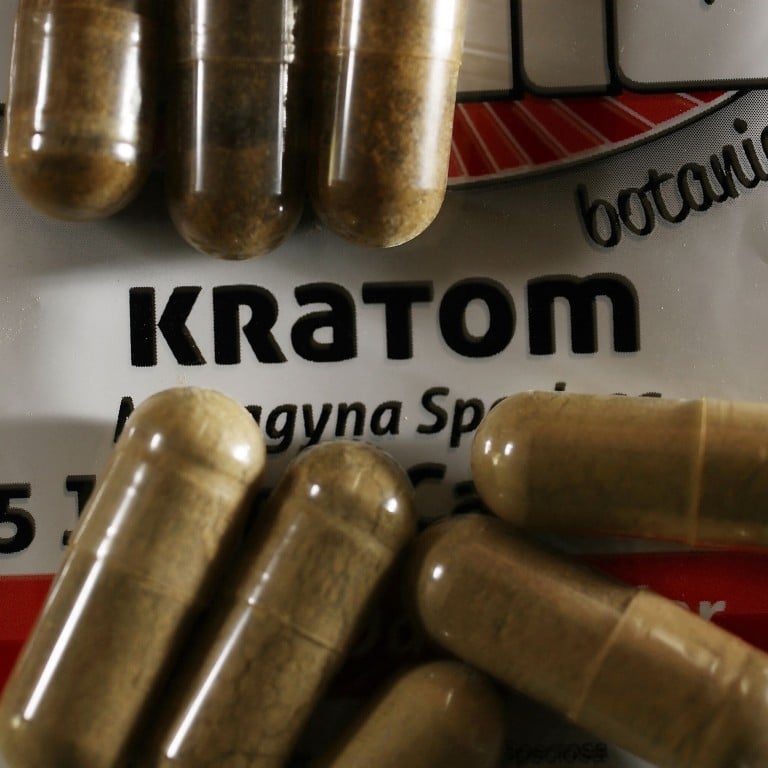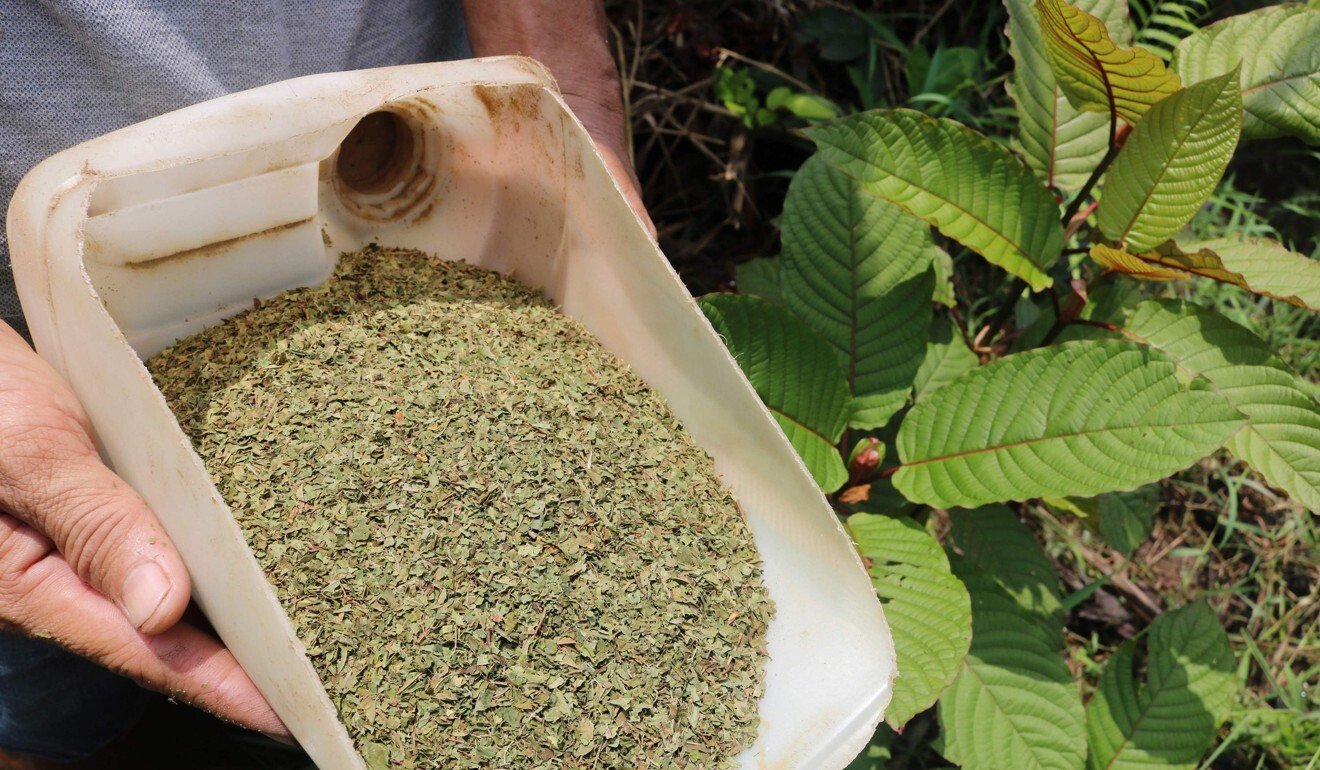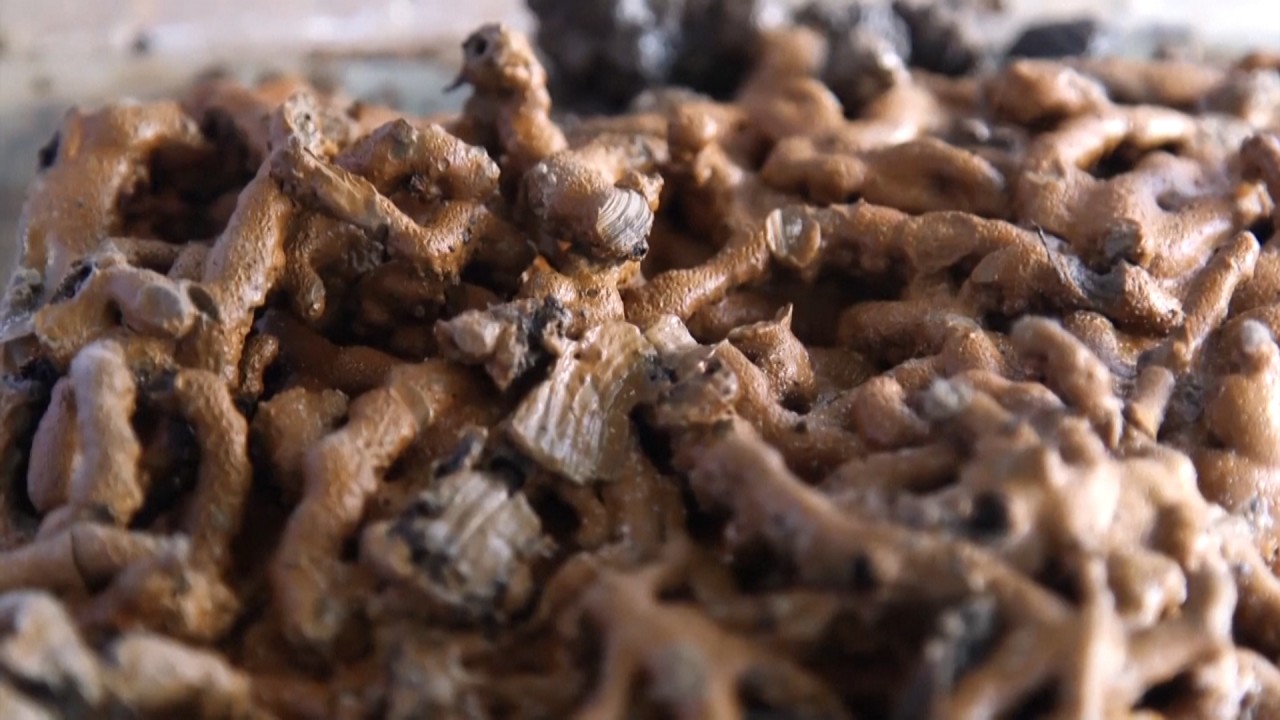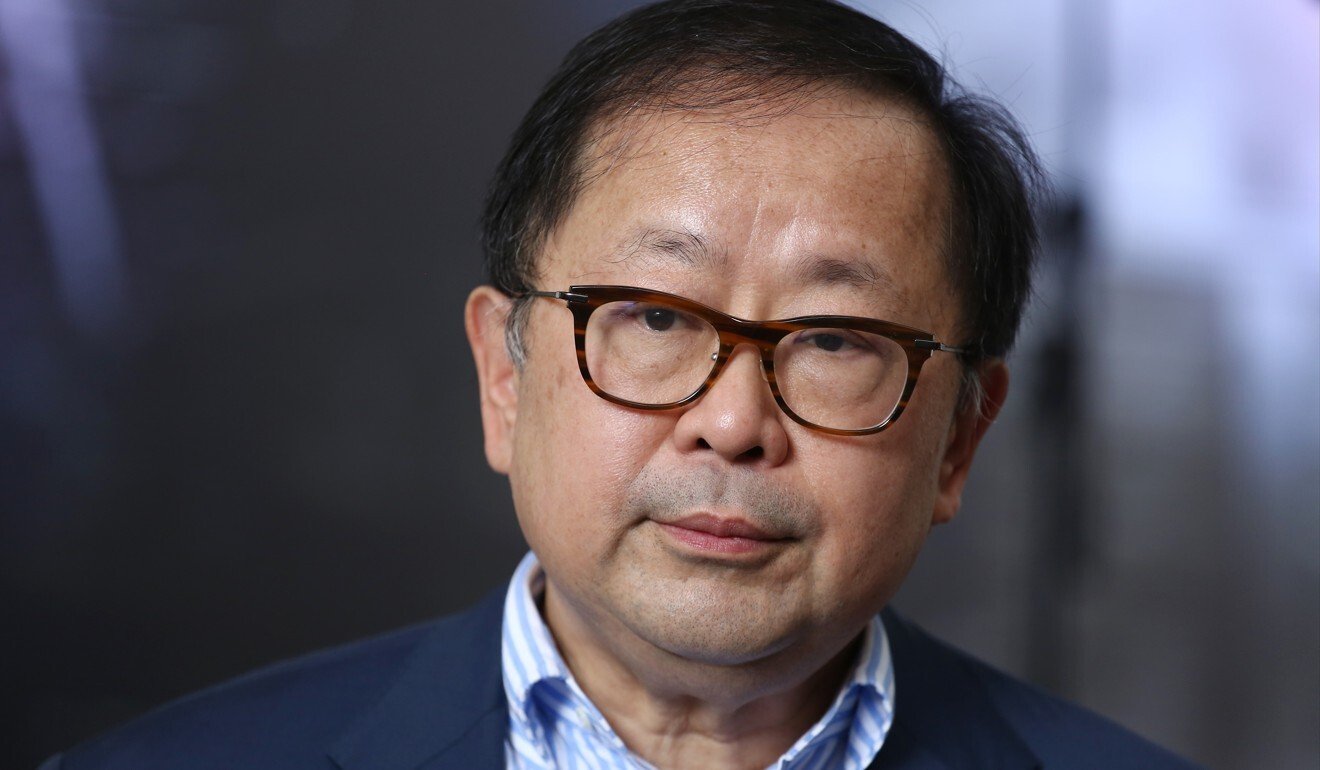
Hong Kong takes a hard line on kratom, the ‘herbal heroin’, but banned substance still available, Post check shows
- Hong Kong enforcement agencies stepping up checks to block import, supply of illegal substance
- Seller in Kowloon says he’s not aware of recent ban, tells Post he will turn customers away
Hong Kong has outlawed kratom, a potentially addictive herbal substance, but checks by the Post have found it is still available in the city.
At the time, anti-narcotics officials and medical experts were unaware of it and saw no urgency to outlaw it.
But a government advisory body on narcotics which studied the substance proposed the ban after a year of discussions.

Kratom, also known as ketum, is made from the leaves of the Mitragyna speciosa tree native to parts of Southeast Asia, including Indonesia and Thailand.
The leaves contain chemical compounds that induce stimulatory or sedative effects similar to those from opioid drugs, such as heroin and opium.
Long used in traditional medicines in the region, in recent years kratom has appeared in the United States and other places where users say it can lift their mood, relieve pain and treat addiction to opioids.
A study by New York University’s Grossman School of Medicine this year estimated there were about 2 million users in the country.
In 2017, 44 deaths related to kratom were identified in the US, but many cases could not be investigated fully because of limited information.
Kratom, the herbal supplement from Indonesia that has US drug agencies worried
Many countries have made the substance illegal, while some have partially legalised it or continue to debate the issue.
Indonesia, believed to be the source of more than 90 per cent of the world’s supply, has banned the domestic use of kratom, but is allowing it to be farmed and exported until next year.
Thailand, which banned kratom in 1943, is decriminalising its use and possession by adults from Tuesday.
Hong Kong took a hard line on August 13, when it added two active ingredients in kratom – mitragynine and 7-hydroxymitragynine – to the list of banned substances under the Dangerous Drugs Ordinance.
Those found guilty of trafficking in these substances or manufacturing them face a maximum penalty of a HK$5 million (US$641,800) fine and life imprisonment. Possession and consumption of the substances have also become criminal offences.

01:14
Archaeologists in China say they’ve found the earliest example of herbal medicine in imperial tomb
A check by the Post last week showed kratom was still on sale at a spot in western Kowloon after the ban took effect. It was the same place from which the Post bought 50 grams of yellow kratom powder for HK$150 in January last year.
Insisting on anonymity, the business owner said he did not know the substance was banned.
He said he sold about 10kg over the past year to expats and locals, and that was less than in previous years as many of his customers had left Hong Kong for various reasons.
The owner said he had fewer than 10 regular customers now, most of them North Americans and Europeans who were “not junkies”.
“All are professionals,” he said, adding that kratom sales contributed only a tiny fraction of his income.
He said his supplies were from Indonesia and the shipments were declared openly as kratom.
The businessman said he still had about 2kg in stock, but now that he knew it was illegal, he would tell customers he had no more to sell.
The ban will just make it famous overnight, and invite people who showed no interest before to try and look for it
A Hongkonger who has used kratom said officials were overreacting by banning a substance he felt was not a dangerous drug.
“The ban will just make it famous overnight, and invite people who showed no interest before to try and look for it,” said the man, in his 40s.
Three kratom dealers in Indonesia told the Post they could find ways to deliver it to users in Hong Kong. They said it could be shipped under different names, as a herbal product, patchouli leaves or henna powder.
But the Security Bureau said law enforcement agencies were geared up to look out for the newly banned substances, and would be checking online as well to stop their illegal import and supply.
They will also work with Hongkong Post and the logistics industry to be on the alert for suspicious packages and cargo.

Hong Kong customs figures showed that 15,000kg of kratom was imported in three consignments in August last year, when it was legal.
A customs spokesman said frontline officers at border checkpoints had been briefed about the banned substances and would be on the lookout.
“Indonesia is a high-risk country as a source of drugs which would appear in the form of health supplements or pills, so we will focus more on such cargo declarations from the country,” the spokesman said.
A police spokesman said the force would work closely with law enforcement agencies and others to monitor the prevalence of kratom in Hong Kong.
The Action Committee Against Narcotics, an influential advisory body of medical experts, health officials and law enforcement representatives that work with the Narcotics Division, changed its view of kratom after a year of studying it.
If we were not aware of it and suddenly realised there were many people using it, it would be a bit late to act
Although agreeing there was potential for abuse, the committee’s former chairman, psychiatrist Ben Cheung Kin-leung, said in February last year there was no urgency to bring it under control because of its scarcity in the city and limited awareness.
His successor, family medicine specialist Dr Donald Li Kwok-tung, said the committee began studying the matter, weighing how to warn the public without publicising kratom. It finally agreed there was a need to propose banning it.
Asked if the ban might be too drastic, he said the potential for abuse was what mattered.
“If we were not aware of it and suddenly realised there were many people using it, it would be a bit late to act. Now is a very good time to stop the possible abuse,” he said.

